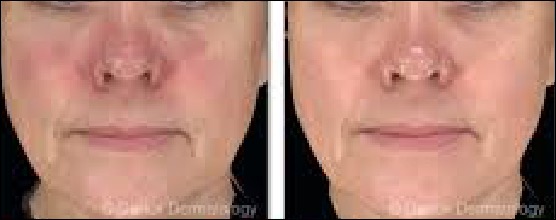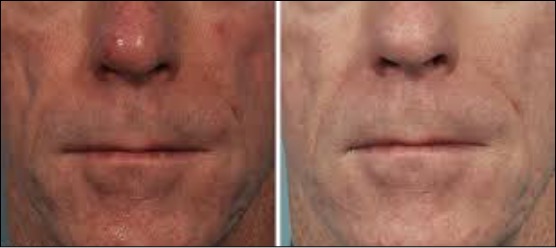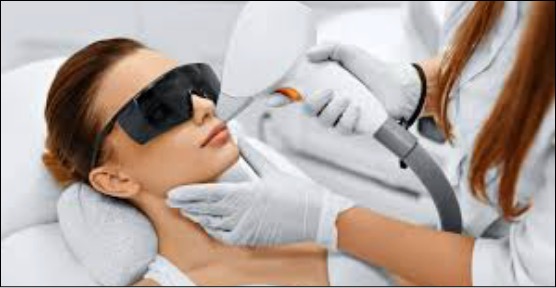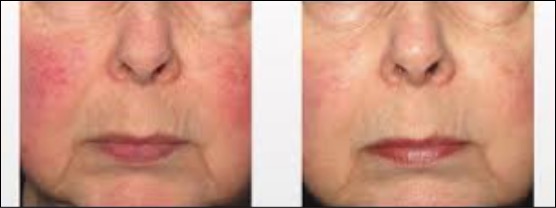WHAT IS ROSACEA?
Rosacea is a disorder involving chronic inflammation of the cheeks, nose, chin, forehead and, or eyelids. It may cause redness, vascularity (increased prominence of the blood vessels), swelling or hyperplasia (increase in size of the tissue), or skin eruptions similar to acne.


What are the symptoms?
Those with rosacea flush easily and can develop redness, pimples and thread veins, on their cheeks, nose and forehead. It usually starts in the second or third decade of life, affecting about 10% of adults. As rosacea affects the face, it can cause significant psychological problems. The unpredictable flushes can cause a lot of embarrassment and anxiety. Flushing is exacerbated by hot spicy foods, alcohol, sunlight, extreme environmental heat or cold and certain cosmetics.
How does the treatment work?
Our system releases precisely controlled strong pulses of filtered light, which diffuse redness, caused by an increased number of tiny blood vessels, which contain haemoglobin. When the cells containing a lot of haemoglobin are treated with the correct type of light, they heat up and are destroyed, within a few thousandths of one second.
How is the treatment performed?
The skin is thoroughly cleansed. A cold gel is applied to the desired treatment area. Goggles will also be applied. Our light applicator is placed onto the skin, where a short pulse of light is released. The applicator is moved to the neighbouring area and the process is repeated until the entire area is treated. The chilled gel is removed, the area cooled further and the skin moisturised.

How does the treatment feel?
No anaesthesia is required. Many equate the sensation to that of a small rubber band. Heat will be felt to the treatment area.

Are there any side effects?
The skin may appear redder and a slight warming sensation is normal after treatment. The area will be cooled after treatment to ease any symptoms. Again, this is normal and will disappear, leading to a more even skin tone.
Can rosacea be prevented?
There is no known prevention for rosacea. Those with rosacea may help control their condition however, by avoiding triggering factors. For many, sun avoidance and sunscreen use is helpful. Others are aggravated by embarrassment, hot or spicy foods, alcohol or extremes of temperature.


